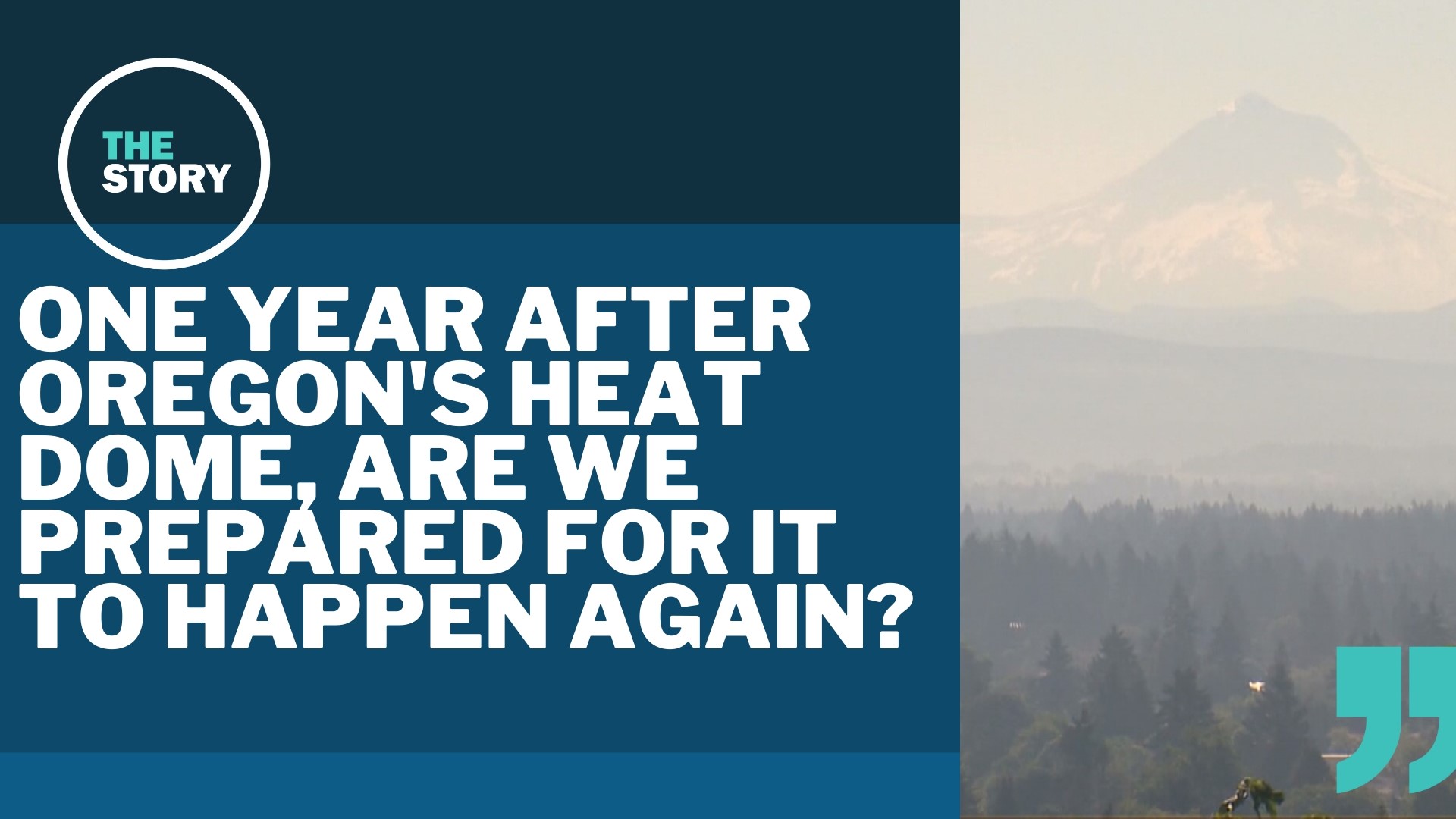PORTLAND, Ore. — Last summer’s deadly heat wave was unlike anything most Oregonians have ever experienced. Three consecutive days of record-breaking heat, which topped out at 116 degrees, resulted in the deaths of nearly 100 people.
The heat wave started on June 26, 2021, with a high of 108 degrees at Portland International Airport (PDX), breaking the all-time heat record of 107 degrees which was set in the 1980s. The next day, it hit 112 degrees and on June 28, PDX saw its hottest day on record when temperatures skyrocketed to 116 degrees.
Will it happen again? Experts say it's possible, but according to Larry O’Neill, a state climatologist and associate professor at Oregon State University, a trifecta of harsh conditions made last summer’s heat dome so extraordinary.
“The high-pressure system was just super large. It was high in intensity. It set records for how high the freezing level was,” said O’Neill. During the summer months, it’s pretty common to see freezing levels jump over 10,000 feet, which is the height of some our mountain peaks in the Cascade range.
The record-breaking temperatures also came during a time when the entire state was experiencing some level of drought.
O’Neill said the drought played a big role in the heat dome. The spring of 2021 was the driest on record for Oregon, and that meant there was no water to evaporate.
When water evaporates, it cools down the atmosphere. But because of how dry the landscape throughout the Pacific Northwest, there was nothing to cool the air.
“The third factor, of course, is climate change," O'Neil said. "The earth is steadily warming, so we have this baseline that just keeps going up and so that added a few degrees as well."
After last summer's heat wave, people want to know if this kind of weather event is something we'll see more often.
“Heat at that extreme level is unlikely over the next couple of decades, but it doesn’t mean that it’s not going to happen,” said Erica Fleishman, director of the Oregon Climate Change Research Institute.
She doesn’t believe heat waves like the one in 2021 will become the norm very soon, but she said it is likely there will be more heat waves and of longer durations of greater intensity.
Both O’Neill and Fleishman agree, while temperatures are warming on a global scale, that doesn’t mean we’re going to see these extremes year after year just yet.
“By the middle part of this century, so by 2050 or the 2100s, this event we had might be a one-in-10-year event or one-in-20-year event. So this is something we could see multiple times in our lifetimes.”
The challenging part, according to O’Neill, is making sure weather models pick up on the warming climate.
What we do know for sure is that it’s not just the Pacific Northwest's summers that are running warmer. Temperature are climbing across the globe every year.

